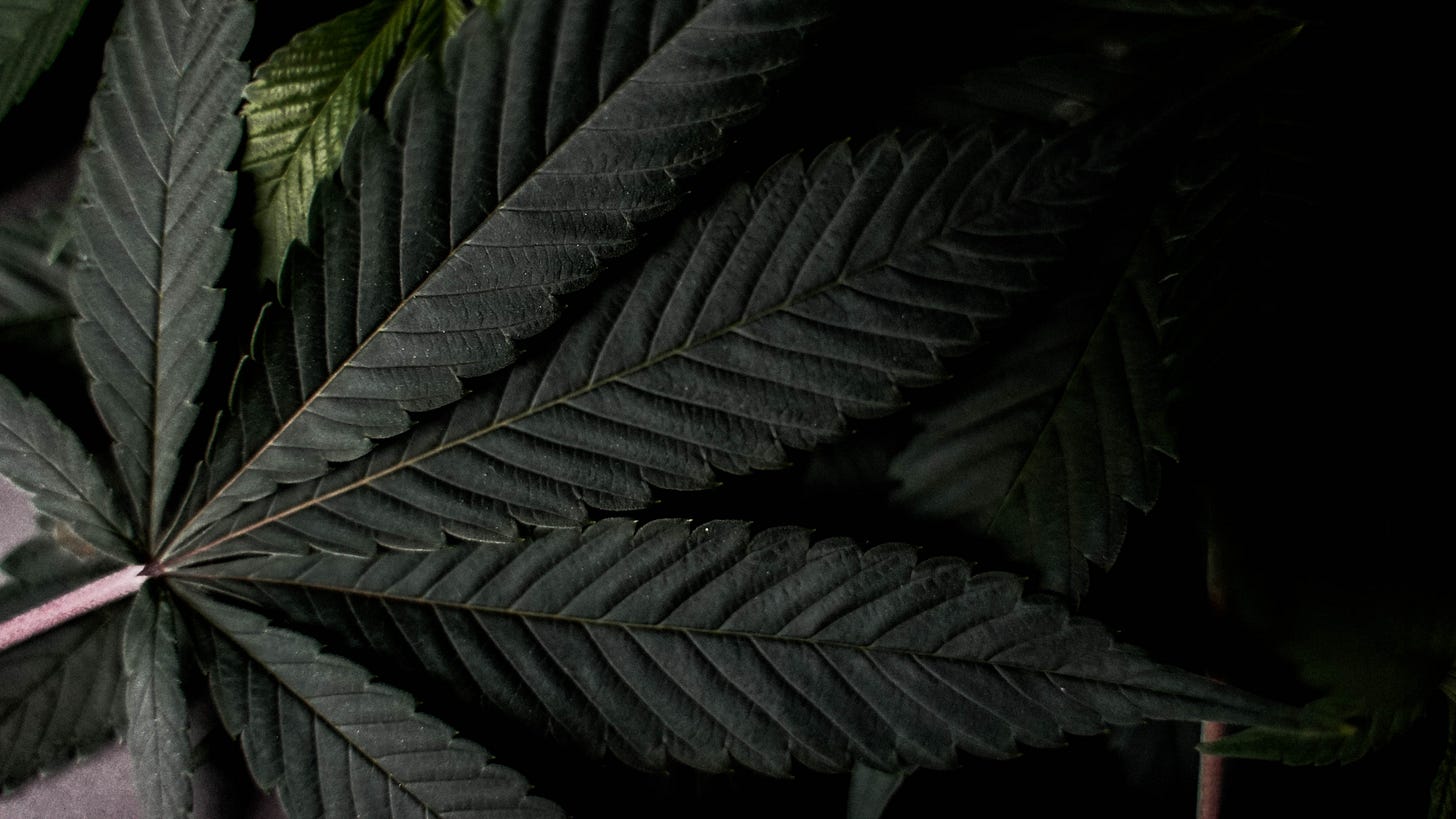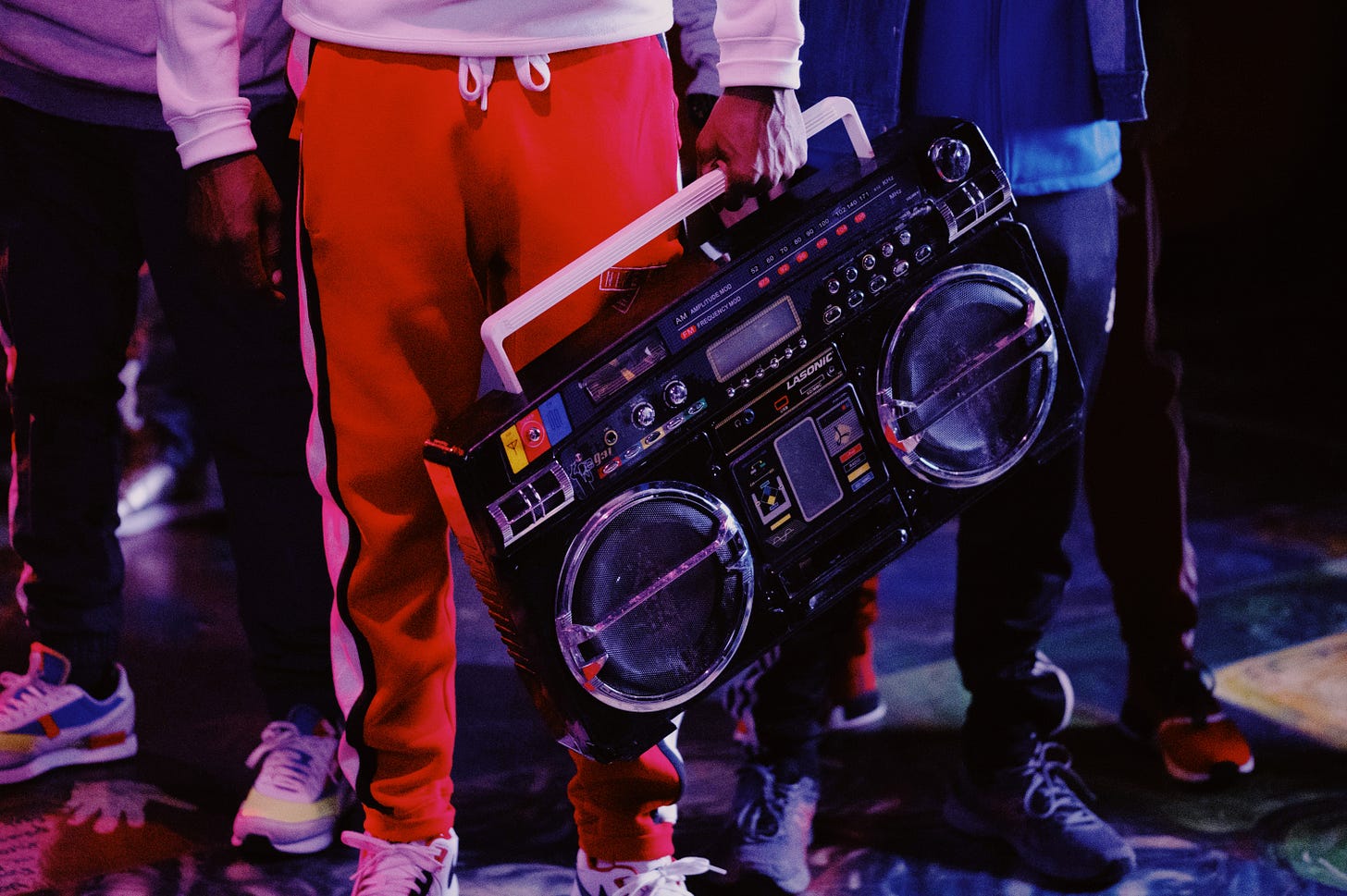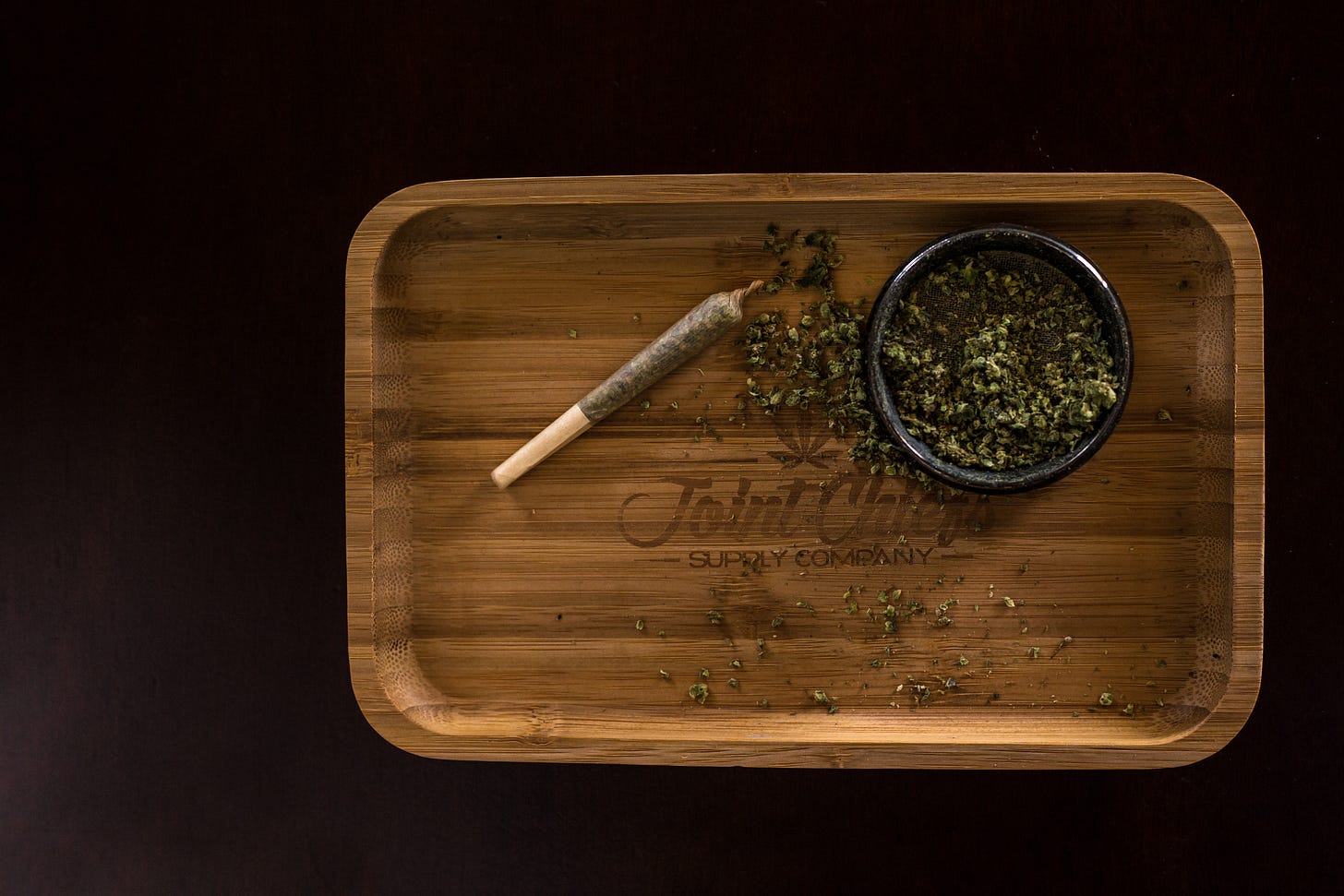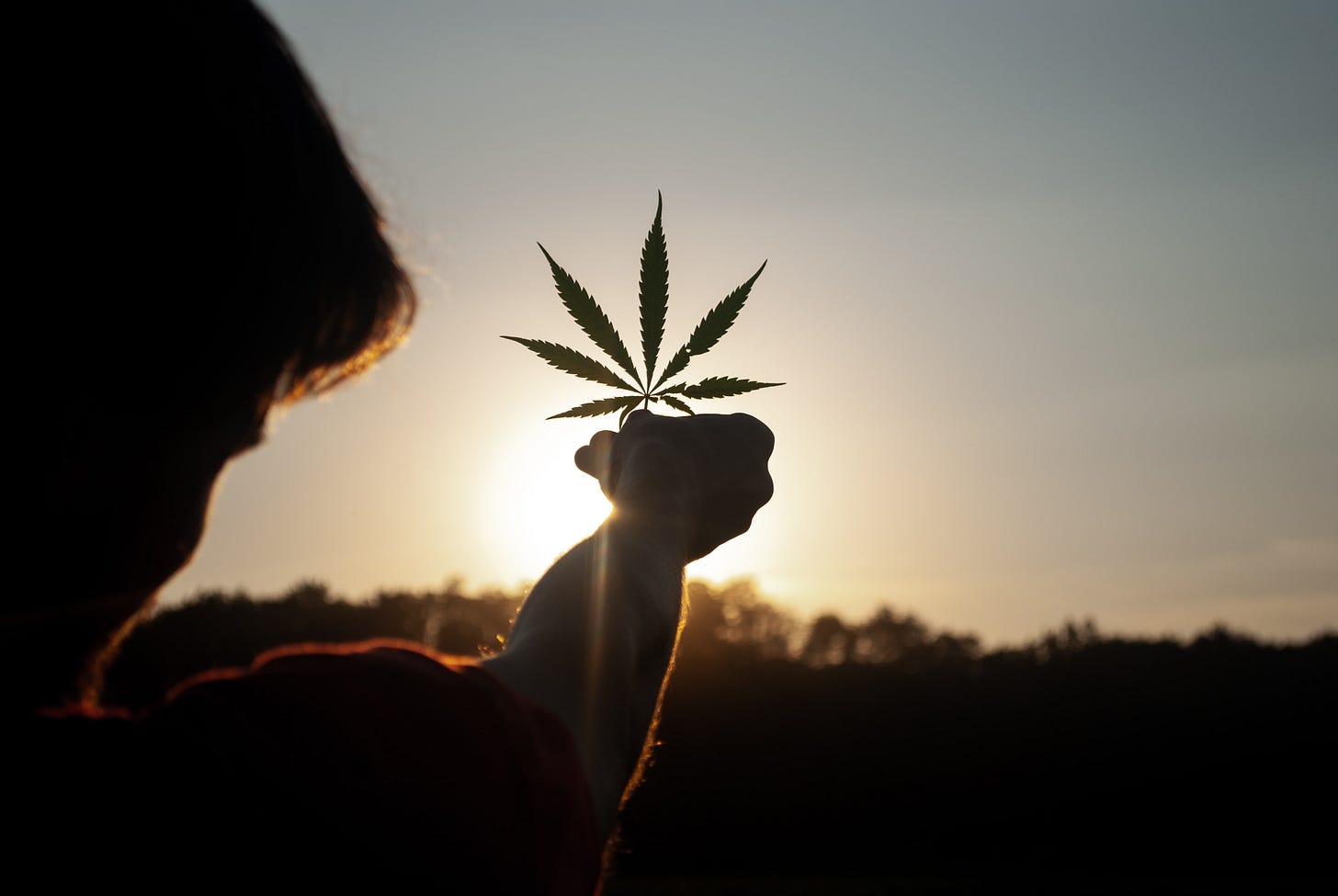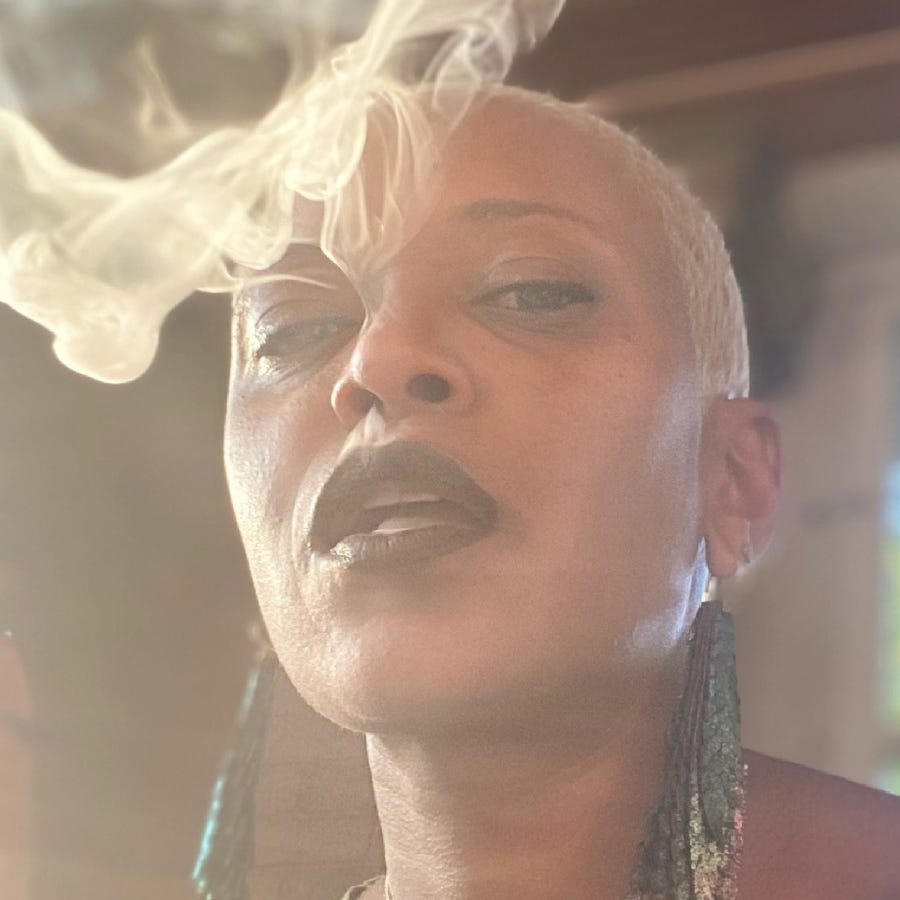Roots
As a little girl growing up on the south side of Chicago, I would have never thought the adults around me were smoking something that was labeled bad, let alone illegal. I just thought that a joint was “those funny smelling cigarettes,” no different than alcohol, and I just knew it was for the grown folks. I spent my early years on 47th and King Drive, the low end, Bronzeville. Bronzeville is where my roots lay in Chicago. I’m a true south side girl through and through.
When I lived in Bronzeville it wasn’t the neighborhood that it’s becoming now. Those funny-smelling cigarettes weren’t the ONLY thing in the air. In those days, Bronzeville reeked of poverty. Some of the things I walked past on a daily basis my kids could never imagine. Bronzeville, just like most of the south side, is categorized as a disproportionately impacted area from the War on Drugs. Even though there was poverty I have some good memories from there as well as some lifelong friends.
While my family moved away from Bronzeville and into the middle-class south side neighborhood of Beverly, I never completely left it behind–and also found new struggles as one of the few black kids in the neighborhood. The summer before I started my freshman year of high school was when I first partook in smoking. I wasn't even sure if I smoked the joint right. I didn’t think I was high until I got on the bus with my best friend, who is actually more like my sister. We lived around the corner from each other and spent a lot of time at each other's houses and we went everywhere together. So it’s really easy to say we smoked a lot of weed together. At the time, I didn’t completely know that cannabis was both a way for us to escape from some of our trauma and, at the same time, a way for America to criminalize Black people. One of the traumas we faced was how our communities were being devastated by the war on drugs.
Stunts, Blunts, & Hip Hop
I am a B Girl for life. Hip Hop culture runs deep in my veins. If it wasn’t for the culture, I’m not quite sure where I would be now. As I watched some of my friends head off to college, I stayed in Chicago–something I regret at times, but again I wouldn’t be who I am today. Hip Hop is how I got involved in community organizing and activism, which has continued to play a major part in my life.
I was (still am, in fact) in a crew called Euphonics/Euphoria. Nancy, the mother of one of the founders of the crew, became a mother of sorts to all of us. Nancy was a huge lover and supporter of the arts. She would allow us to use her basement for our crew meetings every Friday, which would always turn into a creative session full of freestyling over beats made by crew Djs, breaking, and some would hit the streets to go bombing (graffiti).
During this time, Nancy recognized that I was having a hard time figuring out what to do with myself for work, so she introduced me to Americorps Vista in 1995. This was when I found my early calling of working with youth. I became the assistant youth organizer at Chicago Alliance for Neighborhood Safety.
Friday nights were filled with lots of blunt smoking. It almost felt like a requirement of loving Hip Hop. I’m exaggerating, of course, but it was what we did, very similar to the hippie subculture of the 60’s and Jazz before that. Those music genres often spoke about cannabis use that helped spark the creativity of the sound. That promotion of smoking weed also correlates with the fact that these subcultures were looked down upon in mainstream America, but have produced some of the best American music.
The War on Drugs
I had always been a consumer of cannabis, but never had to sell it until I hit a rough patch. In 2000, I moved to Asheville, NC to help my grandmother out with my grandfather who had suffered from heart problems and a couple of strokes. I had only planned on staying there about six months, but that turned into almost three years. I moved out of my grandmother’s house and into a really cute 3 bedroom house with two of my friends who were sisters from Michigan. I think we instantly meshed because we were all from the Midwest, the South was definitely a foreign land to us.
I was working at a group home for autistic children and I had a friend named Rose. At the time I was about 23/24 and Rose must’ve been in her late 50’s. Rose was cool as hell and she liked to smoke weed. One weekend she invited me to drive out to see where she lived. She lived on what she called “the way back.” It was definitely fucking way back. Mapquest wasn’t gonna get me there. This was the type of ride where you are going off the grid. One part of her handwritten directions said to “make a left turn when you get to the old apple tree that is growing through a birdhouse.” So of course I took my roommate with me ‘cause I wasn’t getting lost in the “way Back” of Appalachia by my Black self. Rose’s directions were actually spot on and the drive was worth it. It was definitely a part of the mountains I hadn’t experienced yet. Rose was living on a commune of old hippies who were living off of the land. They even had their water coming off the mountain filtered to drink. That was some cold fresh ass water.
Rose introduced us to her friend Robert–also an older guy–who was into Chinese medicine and other holistic practices. I had got Robert’s contact and I started buying weed from him. He started coming by the house and hanging out with me and my roommates. He wasn’t a stranger around town; Asheville was still a pretty small and intimate place then. One day Robert asked if we wanted to grow in our basement, which felt like a no-brainer since we were spending money on it anyway. We started our adventure, which eventually got cut short due to spider mites. During this period, Robert and one of my roommates got involved intimately. It became an awkward situation quickly. Robert became manipulating and managed to turn her against me and her sister. He was a master manipulator and a narcissist (which would land him in prison years later). Robert had lost his license to practice medicine 20 years before that because he was growing cannabis and prescribing it to his patients. I obviously don’t have an issue with that, but I use this as an example of how he always felt he could do whatever he wanted at whatever cost. What landed him in prison years after I had left Asheville was he was giving cannabis to his young son without his mother’s consent or a prescription. When his home was raided they found cannabis plants as well as poppy plants. North Carolina isn’t a legal state, medicinal or recreational, but it would be the poppies that got him most of his prison time. I always thought it was bizarre that he would involve himself with opioids, considering it's a major drug crisis.
For me, selling and even buying cannabis always carried a risk. Because it was illegal, there was a violence associated with its sale. And of course there was always a risk that I could get arrested–plenty of my friends did. But I realized that the law wasn’t applied equally. Black people didn’t consume, or even sell, cannabis more than white people. We just got arrested in greater numbers. Robert, this older white guy, did whatever he wanted with impunity.
But things were starting to change. I moved to Oakland, California from New York in 2005 shortly after a surgery to remove two ovarian cysts. There, I became a medical cannabis patient. People were starting to recognize that cannabis had many health benefits. But still, my people were going to jail for it.
Finding my Tribe
Back in Chicago, it took a little longer for legalization to arrive, but when it did, I made a decision to shift careers and to work in cannabis. I wanted to work both to educate people about the benefits of cannabis and also try to change laws so my people wouldn’t continue to suffer disproportionately from the war on drugs. That’s how I got involved with Chicago NORML (National Organization for the Reform of Marijuana Laws).
When I started to get involved with the cannabis industry, I found some of the same inequities, but in a different form. Just as people like Robert used to worry less about being imprisoned for cannabis, I now watched as the legal industry came to be dominated by white men.
In addition to the broader, national mission of NORML to educate the public to destigmatize cannabis and change laws, the Chicago chapter specifically works with communities of color. Through Chicago NORML, I found a group of mostly black and brown women who were working to educate and to change laws about cannabis, and to bring greater wealth through cannabis into marginalized communities that had been harmed by the drug war. But it was more than that. I found my tribe. And to some extent, that was always what cannabis was about. When used responsibly, it has health benefits; when the law is applied equitably, it can bring wealth to disenfranchised communities. But for me, and for the people I know who consume it, it’s something to share, a way to build community.
***
A few years ago, I received the terrible news that a close childhood friend had stage 4 colon cancer. She was a fighter, but unfortunately the disease took over her body. We talked about her using cannabis to deal with the side effects from chemo. Whenever she asked, I came through with indica. Even before she went into hospice, I couldn’t help but feel helpless. She was going to die, and there was nothing I, or anyone, could do. She had exhausted all the possibilities for a cure, and the medical options were all about making her as comfortable as possible during the time she had left with us. I am forever grateful that this was something that I, and the plant, could help with. Few drugs are as good at relieving the effects of cancer and chemo as cannabis.
So I brought her nature’s plant.
But it was more than just relieving physical pain. In sharing cannabis with her, I did what we always did. Just like when I was a young B-Girl in Nancy’s basement; like when I first moved to Asheville alone and was looking to find my community; like when I joined Chicago NORML. The plant was a pathway for healing and for taking care of each other, for finding and sustaining community.
Arianne (Ari) Richards she/her is the Executive Director of Chicago NORML, a nonprofit working to create more equitable and just laws in cannabis in Illinois. She is the founder of Chicago Cannabis Concierge, a personal cannabis consultant and educator, and Certified Professional Interpener (cannabis sommelier). She has a degree in African American Studies and worked as a community activist and educator since the 90s. The former rites of passage and summer camp director at the Chicago Wisdom Project, she currently sits on the board of Wisdom Projects, Inc. Today, she has combined her lifelong love of and commitment to her people with her passion for cannabis to dedicate herself to de-stigmatizing, legalizing, and educating about cannabis in order to give equal access to the emerging industry and to create opportunities for underrepresented communities. Arianne is the mother of three daughters and – after having lived in Asheville, NC, New York City, and Oakland, CA – has returned to live on the south side of Chicago, where she was born and raised.




